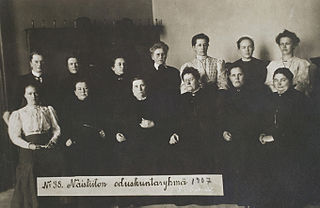
Fiji has held 10 general elections for the House of Representatives since becoming independent of the United Kingdom in 1970; there had been numerous elections under colonial rule, but only one with universal suffrage. In this period, Fiji has had three constitutions, and the voting system has changed accordingly. Note that there are no general elections for the Senate: The 32 Senators are nominated, not elected.

Parliamentary elections were held in Sri Lanka on 2 April 2004. The ruling United National Party of Prime Minister Ranil Wickremesinghe was defeated, winning only eighty two seats in the 225-member Sri Lankan parliament. The opposition United People's Freedom Alliance won 105 seats. While this was eight seats short of an absolute majority, the Alliance was able to form a government.

Elections for the Palestinian National Authority (PNA) were held in Palestinian Autonomous areas from 1994 until their transition into the State of Palestine in 2013. Elections were scheduled to be held in 2009, but was postponed because of the Fatah–Hamas conflict. President Mahmoud Abbas agreed to stay on until the next election, but he is recognized as president only in the West Bank and not by Hamas in Gaza. The Palestinian National Authority has held several elections in the Palestinian territories, including elections for president, the legislature and local councils. The PNA has a multi-party system, with numerous parties. In this system, Fatah is the dominant party.
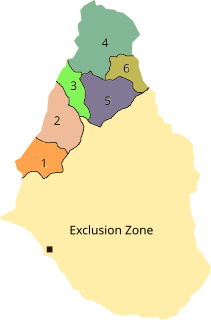
Elections in Montserrat take place within the framework of a multi-party democracy and a parliamentary system. The Legislative Assembly is directly elected, and a Chief Minister is selected by the party or coalition with the most seats in the Assembly.

Elections in Zambia take place within the framework of a multi-party democracy and a presidential system. The President and National Assembly are simultaneously elected for five-year terms.

The Ontario general election, 1890 was the seventh general election held in the Province of Ontario, Canada. It was held on June 5, 1890, to elect the 91 Members of the 7th Legislative Assembly of Ontario ("MLAs").

General elections were held in Fiji between 26 September and 8 October 1966, the last before independence in 1970 and the first held under universal suffrage. The result was a victory for the Alliance Party, which won 23 of the 34 elected seats. Its leader Kamisese Mara became the country's first Chief Minister the following year.

General elections were held in Singapore on 10 April 1951 to elect nine seats on the Legislative Council, up from six seats in the 1948 elections. A 32-day-long campaign period was scheduled, with nomination day on 8 March 1951. The result was a victory for the Progressive Party, which won six of the nine seats.

The Senate is the upper house of the bicameral legislative branch of Liberia, and together with the House of Representatives comprises the Legislature of Liberia. Each of the fifteen counties are equally represented by two senators, elected to serve staggered nine-year terms. The Senate meets at the Capitol Building in Monrovia.

Civic Party is a pro-democracy liberal political party in Hong Kong. It was established in 29 March 2006 by a group of barristers. Led by Alvin Yeung and chaired by Alan Leong, the party is the fourth largest party in the Legislative Council of Hong Kong, commanding five seats. It also has 12 seats in the District Councils.

The Legislature of Guam is the law-making body for the United States territory of Guam. The unicameral legislative branch consists of fifteen senators, each serving for a two-year term. All members of the legislature are elected at-large with the island under one whole district. After the enactment of the Guam Organic Act in 1950, the First Guam Legislature was elected composing of 21 elected members. Today, the current fifteen-member 35th Guam Legislature was elected in November 2018.
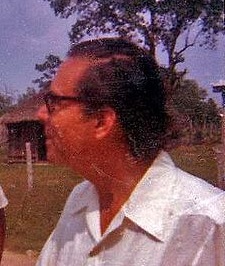
A legislative election was held in British Honduras on 20 March 1957.

Elections for the Legislative Assembly were held in the Gold Coast on 17 July 1956. They were won by Kwame Nkrumah's Convention People's Party, which took 71 of the 104 seats.
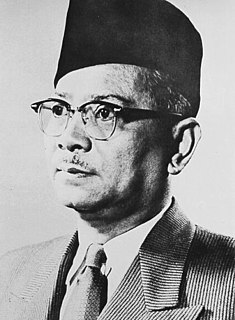
A general election was held on Wednesday, 27 July 1955, the only general election before Malaya's independence in 1957. It was held to elect members of the Federal Legislative Council, which prior to this was fully appointed by the British High Commissioner in Malaya. Voting took place in all 52 federal constituencies of Malaya, each electing one Federal Councillor to the Federal Legislative Council. State elections also took place in all 136 state constituencies in 9 states of Malaya and 2 settlements from 10 October 1954 to 12 November 1955, each electing one Councillor to the State Council or Settlement Council.

The 1995 Hong Kong Legislative Council election for members of the Legislative Council of Hong Kong (LegCo) was held on 17 September 1995. It was the last and the first fully elected legislative election in the colonial period before transferring Hong Kong's sovereignty to China two years later. The elections returned 20 members from directly elected geographical constituencies, 30 members from indirectly elected functional constituencies, and 10 members from elections committee constituency who were elected by all District Board members.

General elections were held in Northern Rhodesia on 19 February 1954. The result was a victory for the Federal Party, which won 10 of the 12 elected European seats in the Legislative Council.

The 1991 Urban Council and Regional Council elections were the municipal elections held on 5 May 1991 for the elected seats of the Urban Council and Regional Council respectively. The election saw the direct rivalry between the newly established political parties, the liberal United Democrats of Hong Kong (UDHK) and the conservative Liberal Democratic Federation of Hong Kong (LDFHK) which the liberal forces won a landslide victory.

Legislative elections were held in East Bengal between 8 and 12 March 1954, the first since Pakistan became an independent country in 1947. The opposition United Front led by the Awami League and Krishak Sramik Party won a landslide victory with 223 of the 309 seats. The Muslim League Chief Minister of East Pakistan Nurul Amin was defeated in his own constituency by Khaleque Nawaz Khan by over 7,000 votes, with all the Muslim League ministers losing their seats.
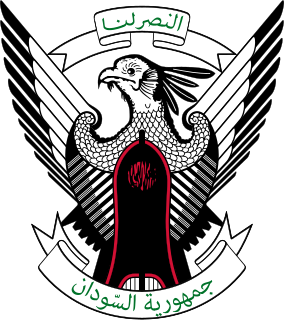
Parliamentary elections were held in Sudan on 15 November 1948.
The Australian Labor Party , also known as Victorian Labor, is the semi-autonomous Victorian branch of the Australian Labor Party (ALP). The Victorian branch comprises two major wings: the parliamentary wing and the organisational wing. The parliamentary wing comprising all elected party members in the Legislative Assembly and Legislative Council, which when they meet collectively constitute the party caucus. The parliamentary leader is elected from and by the caucus, and party factions have a strong influence in the election of the leader. The leader's position is dependent on the continuing support of the caucus and the leader may be deposed by failing to win a vote of confidence of parliamentary members. By convention, the premier sits in the Legislative Assembly, and is the leader of the party controlling a majority in that house. The party leader also typically is a member of the Assembly, though this is not a strict party constitutional requirement.


